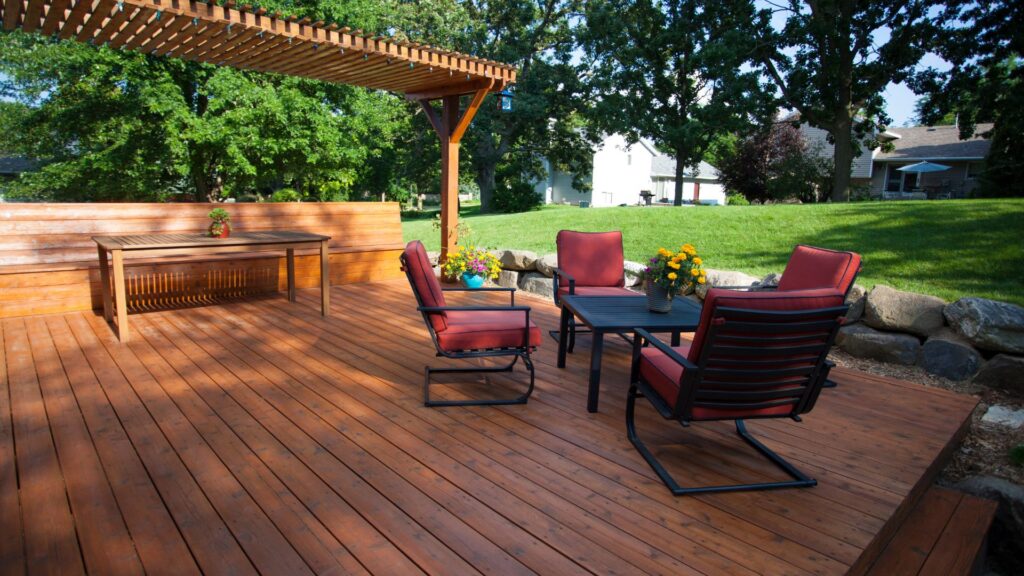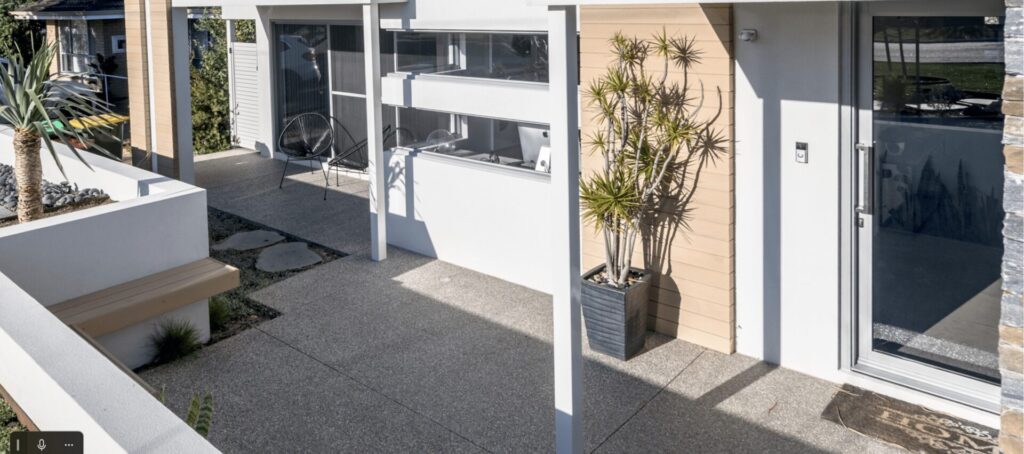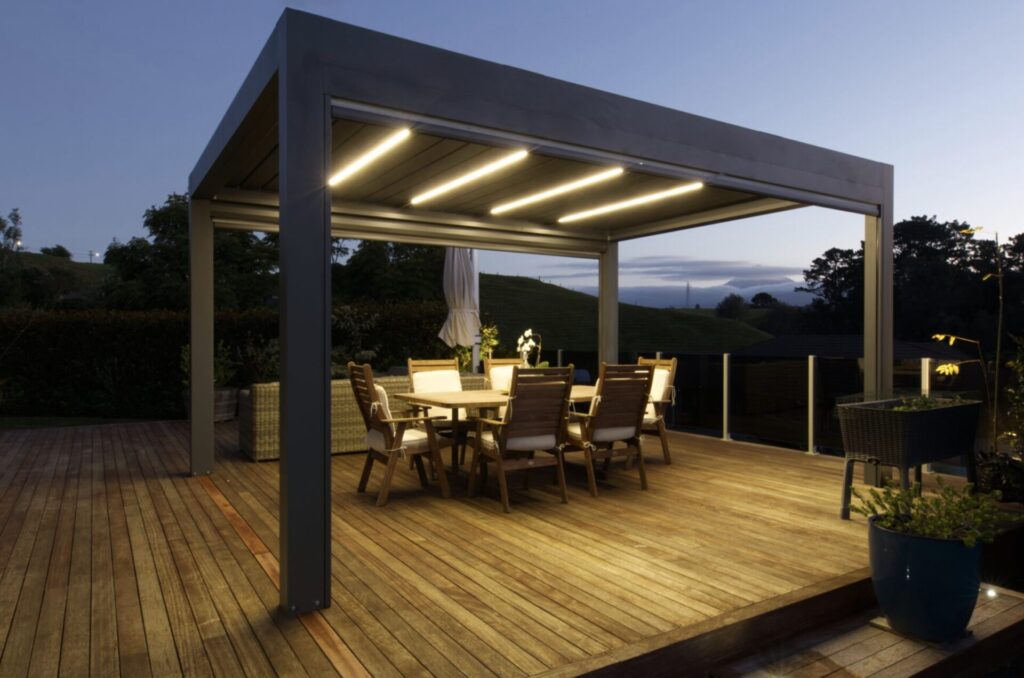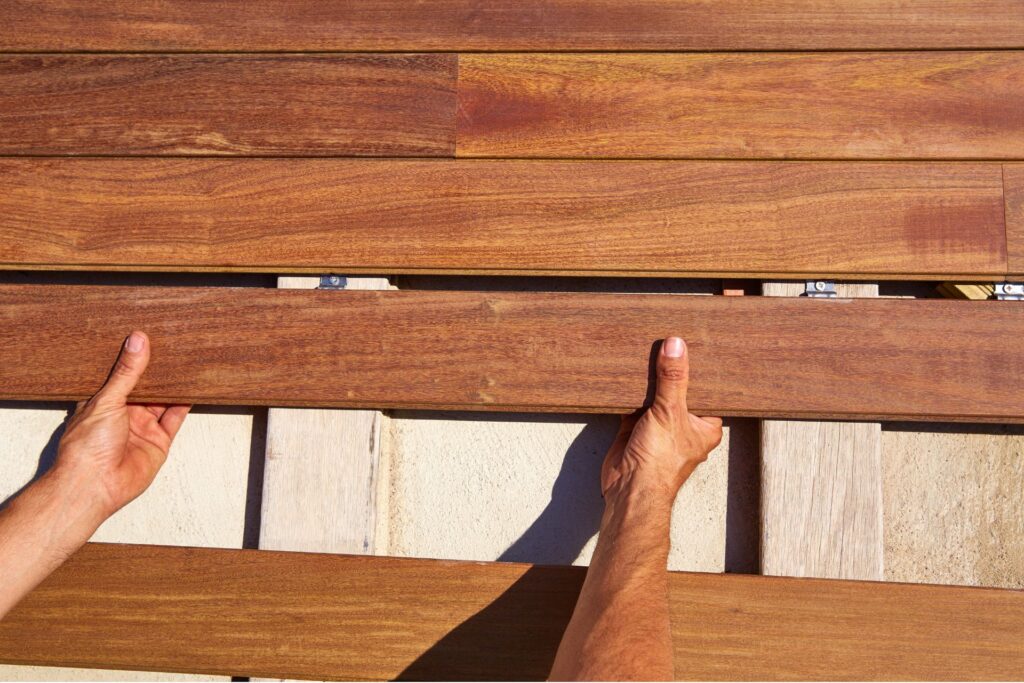Welcome to our comprehensive guide on deck costs in New Zealand, where we’ll walk you through everything you need to know before embarking on your deck-building journey. Adding a deck to your home is a fantastic way to expand your living space, enjoy the outdoors, and increase your property’s value, but it’s essential to understand the various factors that influence the overall cost. From material choices to labour and permits, deck-building in NZ comes with several considerations that can impact your budget. Read on to explore how to make informed decisions, create a deck that suits your needs, and avoid unexpected costs along the way.
On average, the cost of building a deck in New Zealand ranges from $250 to $600 per square meter, depending on factors like materials, size, and labour. Basic wooden decks tend to be on the lower end, while high-end composite or PVC decks with custom designs can push costs higher.
Table of Contents
Factors That Affect Deck Costs In New Zealand
When planning to build a deck in New Zealand, there are several factors that significantly influence the overall cost. From material selection to design complexity, understanding these elements can help you budget effectively and avoid unexpected expenses. Below is a breakdown of the primary factors that will determine the final price of your deck project in NZ.
Material Choices
One of the biggest cost drivers when building a deck is the choice of materials. In New Zealand, homeowners often choose between three main options: wood, composite, and PVC. Each material comes with its own advantages and drawbacks, which can affect both the initial price and long-term value.
- Wood: Traditional timber decking, such as pine or hardwood, is a popular option in NZ. Pine is usually the more affordable choice, while hardwoods like kwila or garapa come at a premium. Wood has a natural look that appeals to many, but it requires regular maintenance like staining and sealing to prevent rot and warping. Over time, the cost of maintaining a wooden deck can add up, making it less economical in the long run.
- Composite: Composite decking is made from a blend of wood fibers and plastic. It is more expensive upfront compared to wood, but it requires less maintenance, which can lead to savings over time. Composite is also more resistant to weathering, making it a solid choice for areas that experience a lot of rain or harsh sun.
- PVC: PVC decking is the most expensive of the three options but offers maximum durability. It’s resistant to moisture, insects, and UV damage, which makes it perfect for the unpredictable New Zealand climate. While the initial cost is high, the virtually maintenance-free nature of PVC can make it a smart investment for homeowners looking for long-term value.
Each material has a different impact on your overall budget, and your choice should depend on factors such as how long you plan to stay in the home and how much maintenance you’re willing to handle.
Size and Design
The size and design of your deck will also play a critical role in the cost. Naturally, larger decks will require more materials and labour, driving up the price. However, it’s not just about square footage—design complexity can have a big impact as well.
- Size: A small, simple deck will cost considerably less than a sprawling, multi-level one. The larger the deck, the more materials you’ll need, which increases costs across the board—especially if you’re using high-end materials like hardwood or composite.
- Design Features: Adding design features such as built-in seating, multi-levels, pergolas, or custom railings will also increase the cost. These elements require more time, skill, and materials to execute properly. While these additions can enhance your outdoor living space, they can also significantly boost the overall price of the project.
Labor Costs
Labor costs in New Zealand can vary depending on your location and whether you hire a professional or take the DIY route. Professional labor usually makes up a significant portion of the deck-building cost, and this can fluctuate based on the complexity of the design and the experience of the contractor.
- Professional Labour: Hiring a qualified builder can cost anywhere from $40 to $80 per hour, depending on the region. Auckland and Wellington typically have higher labor costs compared to smaller towns due to the higher demand and cost of living.
- DIY: If you’re handy and have the time, you may consider building the deck yourself to save on labor costs. However, keep in mind that DIY projects can take longer and may require you to purchase or rent specialized tools. Additionally, mistakes in construction could end up costing more to fix in the long run.
Permit and Compliance Costs
In New Zealand, many deck projects require building consents and permits, especially if the deck is over a certain height or if you are making structural changes to the property.
- Building Permits: Most regions in NZ require a building consent for decks higher than 1.5 meters, or for those attached to a house. The cost for obtaining a building consent can range from $500 to $2,000 depending on your location and the complexity of the project. Failing to get the appropriate permits can lead to fines or issues when selling your property, so it’s important to include these in your budget.
- Compliance Costs: Besides permits, there may be additional compliance costs such as inspections, which are mandatory to ensure that your deck meets local building standards. These costs vary by region but are important to factor into your overall budget.
Other Costs
Several other hidden costs may come into play when building a deck.
- Foundation and Framing: The foundation and framing are essential to the structural integrity of your deck, and their cost depends on the terrain and type of deck you are building. A solid foundation might require concrete footings, and if you’re building on uneven ground, additional work like grading or digging may be needed, which can increase costs.
- Drainage and Terrain Preparation: If your site has poor drainage, you may need to install a drainage system before building the deck. Similarly, if the terrain is uneven or sloped, additional preparation work may be required, adding to the overall cost.
Building a deck in New Zealand involves various factors that affect the total cost. From material choices and design features to labour, permits, and hidden costs, it’s essential to understand all the elements involved in budgeting for your project. By taking a detailed approach and considering these factors early on, you can ensure that your deck project remains within your budget while meeting your needs for outdoor living.

Breaking Down The Average Cost Of Building A Deck In NZ (2024)
When planning to build a deck in New Zealand, one of the most important considerations is the cost. While the overall price can vary significantly depending on factors such as materials, design, and labor, having a breakdown of the average costs can help you plan more effectively. In 2024, the average cost of building a deck in NZ can be categorized into three levels: basic, mid-range, and high-end. Let’s explore each of these categories and what you can expect to pay.
Basic Decks: Affordable and Functional
A basic deck typically involves minimal design elements and is constructed using cost-effective materials. Pine, one of the most popular choices for basic decks in New Zealand, is relatively affordable and easy to work with. The cost of building a basic deck in 2024 ranges from NZD 200 to 300 per square meter. For a standard-sized 20m² deck, you can expect the total cost to be between NZD 4,000 and 6,000. This price usually covers the materials, labor, and standard installation, but additional features like handrails or custom finishes may increase the total cost slightly.
Mid-Range Decks: Balancing Quality and Aesthetics
If you’re looking for a deck that offers a bit more in terms of aesthetics and durability, a mid-range deck might be your ideal option. Hardwood materials like Kwila or Vitex are commonly used in mid-range decks due to their durability and natural beauty. The price per square meter for mid-range decks in New Zealand is typically between NZD 350 to 500. This means that for a 20m² deck, the cost could range from NZD 7,000 to 10,000. Mid-range decks often include features such as built-in seating or planter boxes, which add to the overall look and functionality.
High-End Decks: Premium Materials and Custom Designs
High-end decks are all about luxury, using premium materials such as composite decking or tropical hardwoods. Composite decking, for example, is extremely durable and low-maintenance but comes with a higher price tag. For high-end decks, the average cost per square meter can range from NZD 600 to 900. A 20m² deck in this category might cost between NZD 12,000 and 18,000. These decks often feature custom designs, intricate railing systems, integrated lighting, and other high-end finishes that significantly elevate both the appearance and functionality of the outdoor space.
Price Breakdown by Material
- Pine: NZD 200 – 300 per m² (basic decks)
- Hardwood (Kwila, Vitex): NZD 350 – 500 per m² (mid-range decks)
- Composite: NZD 600 – 900 per m² (high-end decks)
Real-Life Example: The Cost of a 20m² Deck
To give you a clearer picture, let’s consider a 20m² deck in a mid-range design. Using hardwood materials like Kwila, the total cost for this deck would fall between NZD 7,000 and 10,000. If you decide to go for additional features such as built-in seating or a custom railing system, the total cost might lean towards the higher end of this range. On the other hand, opting for a simpler, basic pine deck would cost around NZD 4,000 to 6,000, while a high-end composite deck could set you back between NZD 12,000 and 18,000.
In conclusion, the cost of building a deck in New Zealand in 2024 varies widely depending on the materials and complexity of the design. By understanding these cost ranges and planning according to your budget and preferences, you can create the perfect outdoor space for your home.
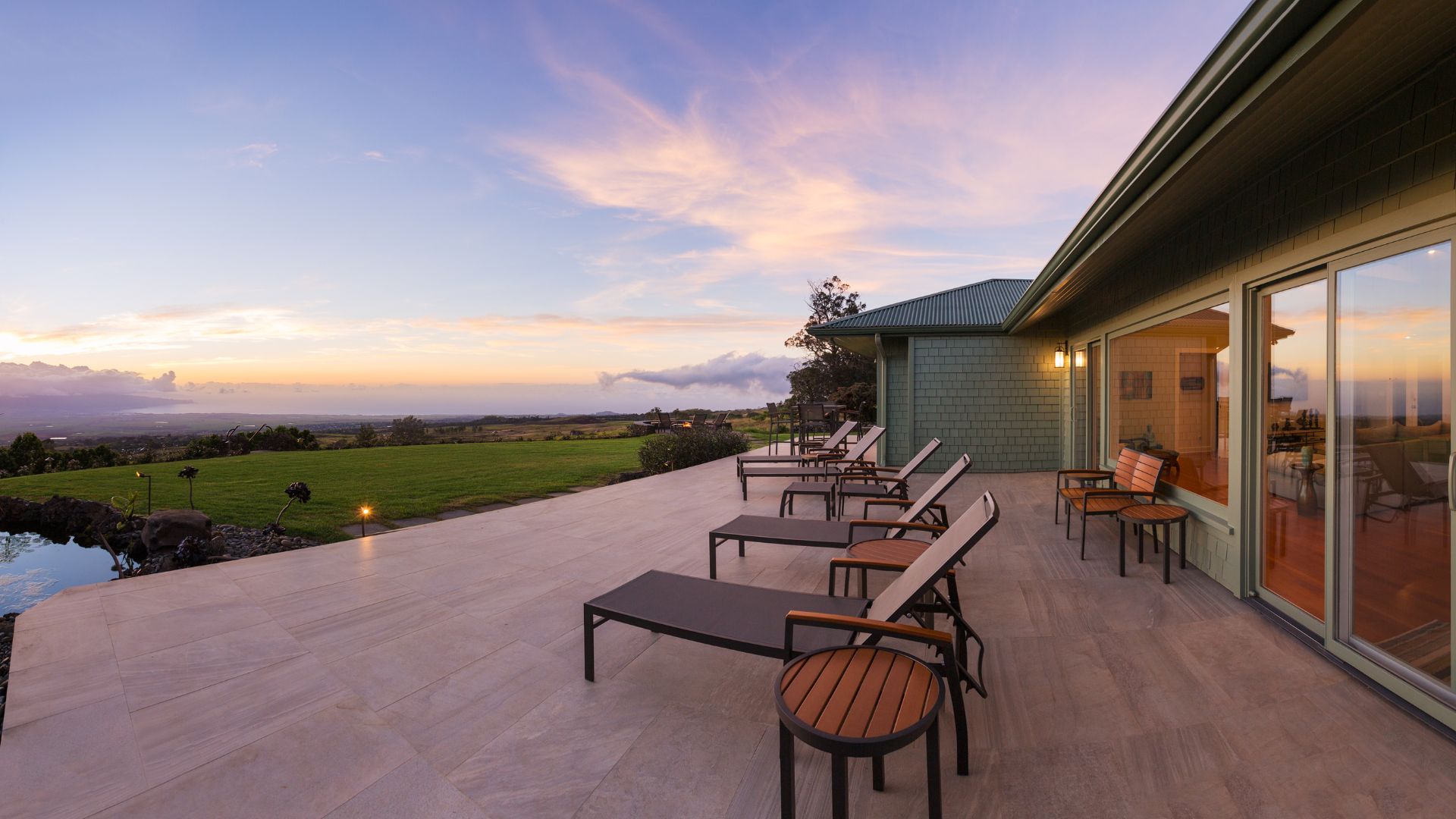
Additional Costs To Consider
When budgeting for a deck in New Zealand, it’s essential to keep in mind that the initial construction costs are only part of the equation. Additional expenses such as ongoing maintenance, deck accessories, and landscaping can significantly impact the overall cost. Understanding these factors can help you plan better and avoid unexpected expenses down the line.
Deck Staining and Maintenance
Wooden decks, while beautiful and classic, require regular upkeep to maintain their appearance and longevity. Deck staining and sealing are essential to protect the wood from the harsh New Zealand weather, which can cause wear and tear over time. Typically, a wooden deck will need to be stained every one to two years, depending on the type of wood used and the exposure to the elements. The cost of deck staining in NZ can vary, but you should budget for around $500 to $1,500, depending on the size of your deck and whether you choose to do it yourself or hire a professional.
In contrast, composite or PVC materials require far less maintenance. These materials are resistant to moisture, rot, and insect damage, making them a low-maintenance option. While the initial cost of composite or PVC decking may be higher than wood, the savings in ongoing maintenance costs make them an attractive choice for many homeowners. Over time, the reduced need for staining, sealing, and repairs can offset the higher upfront cost.
Deck Accessories
Deck accessories are another cost factor that can add to your overall budget. Items such as lighting, railings, and outdoor furniture can significantly enhance the functionality and aesthetic appeal of your deck but come with additional costs. For example, outdoor lighting not only improves safety but also extends the usability of your deck into the evening hours. Depending on the complexity of the lighting system, this can cost anywhere from $100 to $1,000.
Railings are another consideration, especially if you have a raised deck or want to add an extra layer of safety and style. The cost of deck railings in NZ can vary widely based on the material and design, with options ranging from $50 per meter for basic wooden railings to $300 or more for custom glass or metal designs. Adding comfortable outdoor furniture can further increase the cost, especially if you opt for high-quality, weather-resistant pieces.
Outdoor Landscaping
Many homeowners choose to integrate their deck into the overall landscape design of their garden. This can include anything from simple planting around the deck to creating a full outdoor living space complete with pathways, garden beds, and water features. Landscaping costs can vary significantly based on the complexity of the design and the materials used. For a simple garden design around your deck, you might spend a few hundred dollars on plants and mulch, while more elaborate designs involving hardscaping or water features can run into the thousands.
Landscaping not only enhances the appearance of your deck but can also increase the value of your home. When planning your deck, it’s worth considering how it will fit into the overall design of your outdoor space and whether you need to allocate extra budget for landscaping work.
While building a deck in NZ involves significant upfront costs, it’s crucial to consider these additional expenses to avoid surprises. Maintenance, accessories, and landscaping can all add to your budget, but with careful planning, you can create a beautiful, functional space that fits your needs and budget. Be sure to weigh the pros and cons of different materials and think about the long-term costs to ensure your deck remains a valuable part of your home for years to come.

Ways To Save Money On Deck Building In NZ
Building a deck in New Zealand can be a valuable addition to your home, enhancing outdoor living spaces and increasing property value. However, the cost can quickly add up if not managed wisely. Thankfully, there are several practical ways to save money on deck building without sacrificing quality or aesthetics.
DIY vs. Hiring Professionals
One of the biggest ways to save money on deck construction is by considering whether to take the DIY route or hire professionals. DIY deck building can significantly reduce costs, as you save on labor fees, which can make up a large portion of the total project expense. If you have some carpentry skills, time, and the right tools, a DIY project can be rewarding. However, DIY is not for everyone, especially for complex designs or large-scale decks. Mistakes made during construction can end up costing you more in the long run, not to mention potential safety concerns if the deck isn’t built to code.
On the other hand, hiring a professional brings a level of expertise and efficiency that may be worth the cost, especially for intricate designs or difficult terrain. A pro will ensure that the deck is structurally sound and compliant with NZ building regulations. In some cases, hiring a contractor could save you from costly mistakes, making it a better long-term investment. Weighing the pros and cons of DIY versus professional help comes down to your budget, skills, and the scope of the project.
Off-Peak Building Seasons
Another smart way to save on deck construction in New Zealand is by scheduling your build during off-peak seasons. Most contractors are busiest during the warmer months, particularly in spring and summer, when demand for outdoor projects surges. By planning your deck project for the autumn or winter months, you could benefit from lower labor costs, as builders may offer discounts or more competitive rates to secure work during slower periods. Additionally, you might find that materials are less expensive during the off-season, as suppliers may run promotions or reduce prices on stock that has not moved.
Timing your project strategically can lead to substantial savings, but keep in mind that weather conditions could affect the speed of construction, especially during winter months when rain or cold could slow progress. Nevertheless, with the right planning, off-peak building could be an excellent way to reduce overall costs.
Material Discounts
Another key area where you can cut costs is through material selection. Buying materials in bulk, looking out for sales, or opting for locally sourced products can make a big difference in your final budget. Bulk buying, especially for larger decks, often results in significant discounts from suppliers. Keep an eye out for seasonal sales or clearance events at local hardware stores. Many businesses also offer discounts for certain types of decking materials, especially if they’re overstocked or if newer products are set to replace them.
Locally sourced materials not only tend to be more affordable than imported options, but they also support local businesses and have the added benefit of reduced transportation costs, making them a more environmentally sustainable choice. However, be mindful to balance cost-saving with quality—choosing lower-grade materials might seem like a win upfront, but could lead to higher maintenance costs down the line.
Simplifying Design
When it comes to saving money, simplifying the design of your deck is one of the most effective strategies. Complex designs with multiple levels, intricate patterns, or custom features like built-in seating can quickly drive up labor and material costs. A simple, functional design, on the other hand, is easier and faster to build, meaning you’ll spend less on labor and materials without compromising on usability or aesthetics.
That doesn’t mean your deck has to be plain. Thoughtful touches like stain, outdoor furniture, or landscaping can still make a simple deck look polished and inviting. Keeping the design straightforward can also mean fewer complications during construction, reducing the risk of costly delays or issues.
In conclusion, saving money on deck building in New Zealand is entirely possible with the right approach. Whether you’re considering DIY, planning for the off-season, hunting for material discounts, or simplifying your design, there are numerous ways to bring your project to life while staying within budget. With careful planning and strategic decision-making, you can create a beautiful, functional outdoor space without breaking the bank.
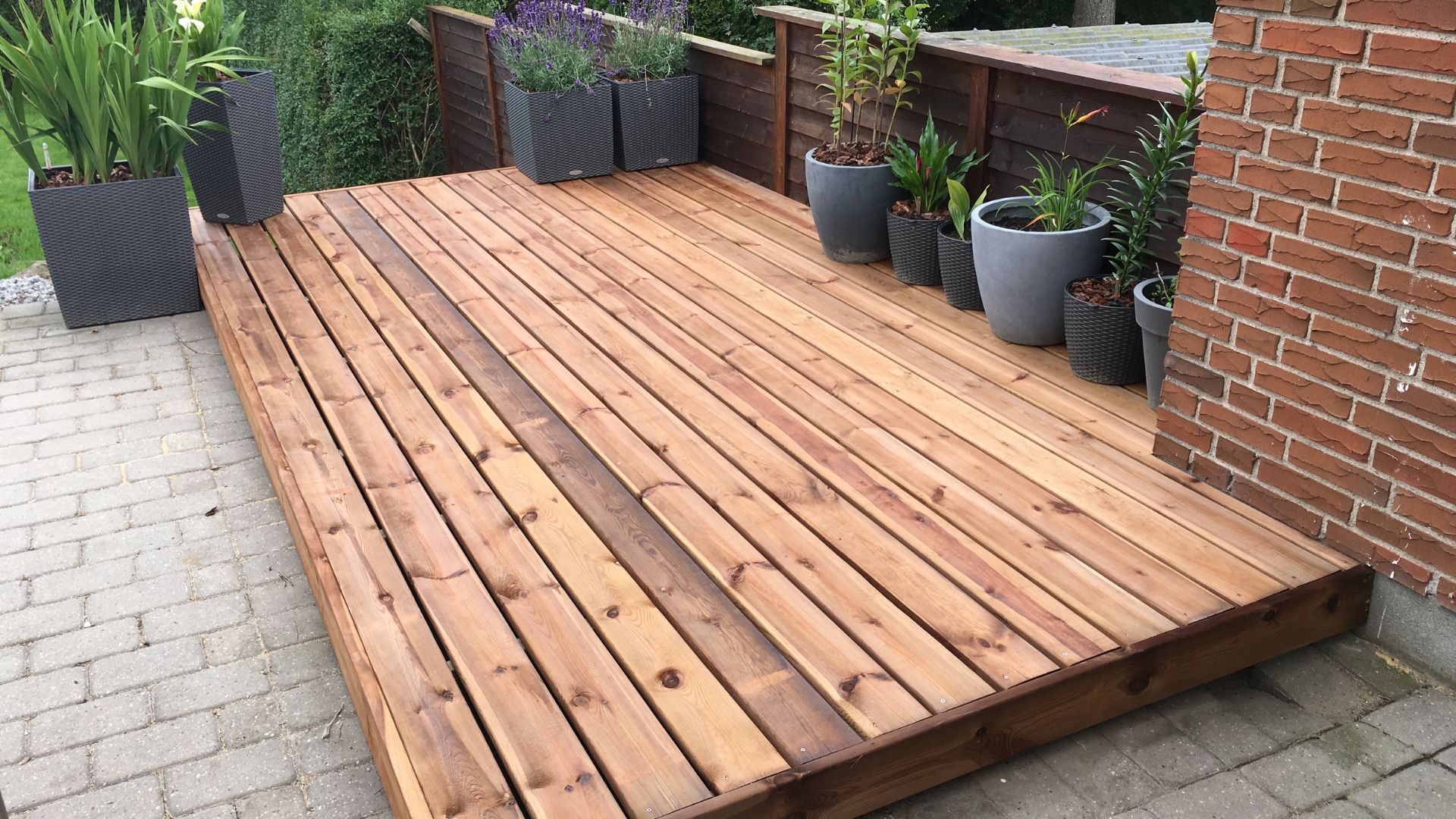
Is It Worth Investing In A High-End Deck?
When deciding whether to invest in a high-end deck, it’s essential to weigh both the immediate costs and the long-term benefits. A premium deck, built with high-quality materials and installed by professionals, can offer significant advantages that go beyond just the initial aesthetic appeal.
Long-Term Benefits of High-End Decks
A key reason homeowners opt for a high-end deck is the long-term value it adds to the property. Materials like hardwoods, composite decking, and treated timber are known for their durability and resistance to the elements. In New Zealand, where outdoor living spaces are highly prized, investing in a robust, weather-resistant deck can mean fewer repairs and replacements down the road. Premium materials are designed to withstand wear and tear from foot traffic, weather changes, and exposure to UV rays. This longevity reduces the need for costly maintenance, providing savings in the long term.
Another benefit of a high-end deck is the quality of craftsmanship. Professional installation ensures that the structure is not only sturdy but also aesthetically pleasing. With meticulous attention to detail, high-end decks often feature intricate designs, built-in lighting, or custom features that elevate the overall outdoor experience. These extra touches can make your home more appealing to both you and potential buyers in the future.
Aesthetics and Resale Value
In the New Zealand housing market, outdoor spaces play a critical role in a home’s appeal. A well-constructed high-end deck can significantly enhance your property’s curb appeal, giving it a more polished and luxurious look. Whether you’re entertaining guests or simply enjoying some quiet time outdoors, a premium deck creates an inviting atmosphere that is hard to replicate with lower-end alternatives.
From a financial perspective, a high-end deck can also increase the resale value of your home. According to real estate experts, homes with quality outdoor living spaces tend to attract more interest from buyers and can command higher sale prices. In some cases, homeowners have recouped a significant portion of their deck investment when selling their property. The perception of quality and durability associated with a high-end deck can be a major selling point, especially in competitive housing markets across New Zealand.
Weighing Costs vs. Benefits
Of course, the upfront cost of a high-end deck is higher compared to standard options. Materials like hardwood or composite are more expensive, and professional installation comes at a premium. However, these costs need to be weighed against the benefits over time. High-end decks generally last longer, require less maintenance, and enhance the overall value of your home. For homeowners who plan to stay in their homes for the long term, the investment can prove highly beneficial, both functionally and financially.
On the other hand, if your priority is short-term savings, a high-end deck may seem like a significant investment. But it’s worth noting that cheaper decks often require more frequent repairs, replacements, and maintenance, which can add up over time. By investing in a premium deck now, you can enjoy peace of mind knowing that you’ve chosen a solution that will last for years, saving you both time and money down the road.
Ultimately, whether or not a high-end deck is worth the investment comes down to your priorities as a homeowner. If you’re looking for durability, aesthetics, and a boost in home value, investing in a high-quality deck makes sense. In New Zealand’s climate and housing market, a well-constructed outdoor living space can be a worthwhile investment, offering both personal enjoyment and financial rewards.
In summary, a high-end deck, while more expensive upfront, offers numerous advantages. It provides longevity, reduces maintenance, enhances curb appeal, and potentially increases resale value—making it a smart choice for many homeowners.
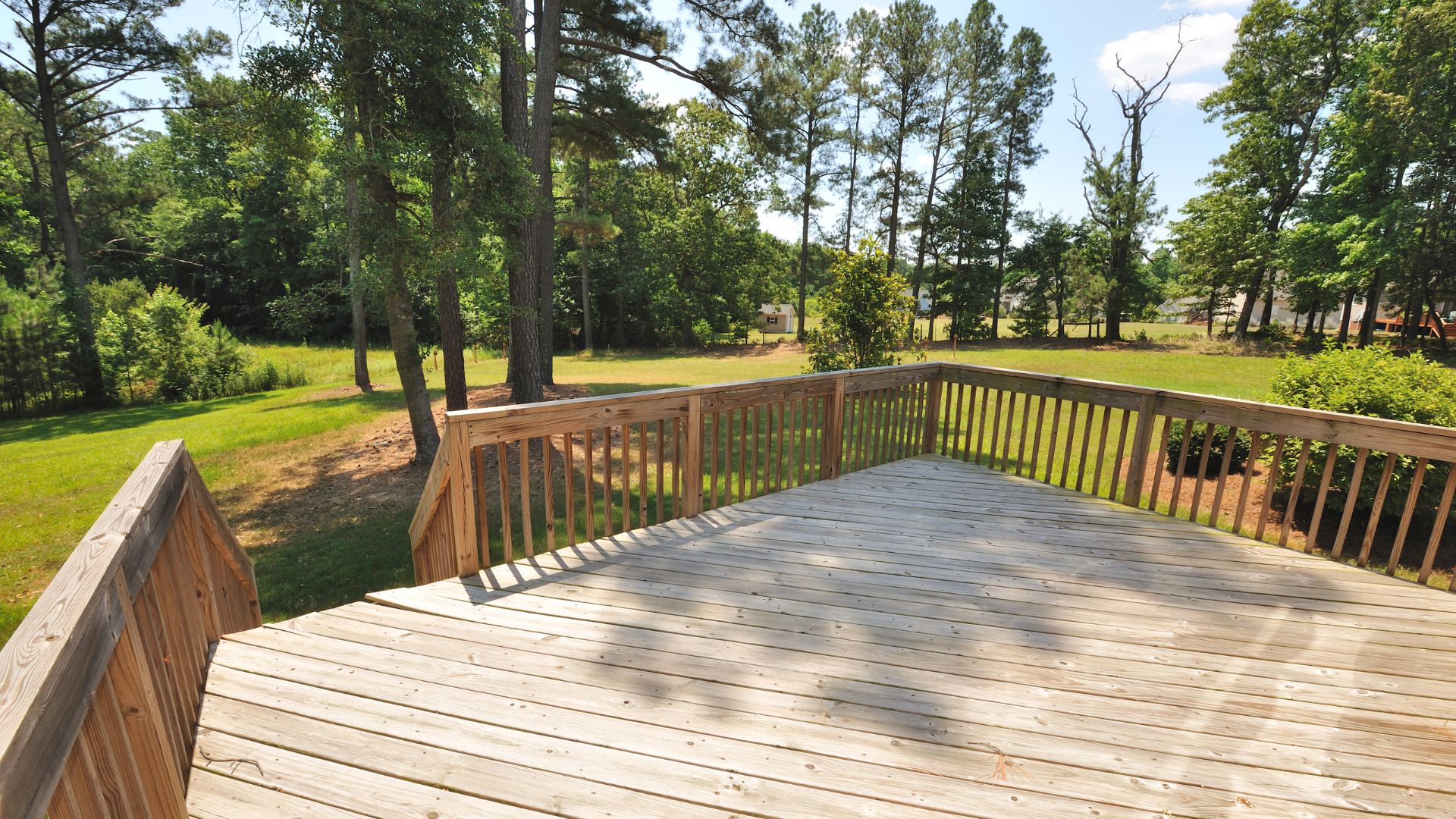
FAQs: About Deck Cost NZ
What is the average cost of building a deck in New Zealand?
On average, building a deck in New Zealand costs between $250 and $600 per square meter. The final cost depends on factors like the materials used, the size of the deck, and the complexity of the design.
What materials are commonly used for decking in NZ?
The most popular decking materials in New Zealand include treated pine, hardwood (such as Kwila), composite decking, and PVC. Each material varies in cost, durability, and maintenance requirements.
How much do labour costs affect the overall deck price in NZ?
Labour costs can significantly affect the final price, especially if you hire professionals. Depending on the region and the complexity of the project, labour costs can range from $50 to $150 per hour in New Zealand.
Do I need a building consent for a deck in New Zealand?
In most cases, a building consent is required for decks higher than 1.5 meters off the ground. However, regulations vary depending on local council rules, so it’s important to check your area’s specific requirements.
What are the most cost-effective decking materials in NZ?
Treated pine is generally the most affordable option for decking in New Zealand, but it requires more maintenance than composite or PVC materials. Composite decking, while more expensive upfront, tends to have lower long-term maintenance costs.
Can I build a deck myself to save money?
Yes, building a deck yourself can save on labour costs, but it requires the right skills, tools, and knowledge of building regulations. DIY can be cost-effective for simpler designs but may be risky for larger or more complex decks.
What are some hidden costs of building a deck?
Hidden costs may include building consents, site preparation, drainage solutions, and additional features like railing or lighting. It’s important to factor in these elements when budgeting for your deck.
How can I reduce the cost of building a deck?
To reduce costs, consider using more affordable materials like treated pine, simplifying the deck design, or building during off-peak seasons when contractors may offer lower rates. DIY options can also cut down on labour expenses.
How much does maintenance cost for a wooden deck in NZ?
Maintaining a wooden deck can cost between $200 and $500 per year, depending on the size of the deck and the level of upkeep required. This includes regular cleaning, staining, and sealing to protect the wood from the elements.
What is the expected lifespan of a deck in New Zealand?
The lifespan of a deck depends on the materials used and how well it’s maintained. Wooden decks typically last 10 to 20 years with proper care, while composite and PVC decks can last 25 to 30 years with minimal maintenance.
Conclusion
When planning your deck budget in New Zealand, it’s crucial to consider the factors that influence costs, such as the size, materials, design complexity, and local labour rates. Additionally, it’s important to account for long-term expenses, including maintenance and potential repairs, to ensure your investment lasts. To create a realistic budget, start by researching different materials and comparing their durability and price points, while also factoring in the costs of any necessary permits or professional services. It’s a good idea to get quotes from multiple contractors to ensure you’re getting the best value, and online deck cost calculators can be helpful tools for estimating your project. Whether you’re looking to build a modest outdoor space or a more elaborate design, doing your research and gathering quotes will help you plan effectively. Reach out to local deck builders or use online resources to get a clearer idea of your project’s potential cost.
About the Author:
Mike Veail is a recognized digital marketing expert with over 6 years of experience in helping tradespeople and small businesses thrive online. A former quantity surveyor, Mike combines deep industry knowledge with hands-on expertise in SEO and Google Ads. His marketing strategies are tailored to the specific needs of the trades sector, helping businesses increase visibility and generate more leads through proven, ethical methods.
Mike has successfully partnered with numerous companies, establishing a track record of delivering measurable results. His work has been featured across various platforms that showcase his expertise in lead generation and online marketing for the trades sector.
Learn more about Mike's experience and services at https://theleadguy.online or follow him on social media:
